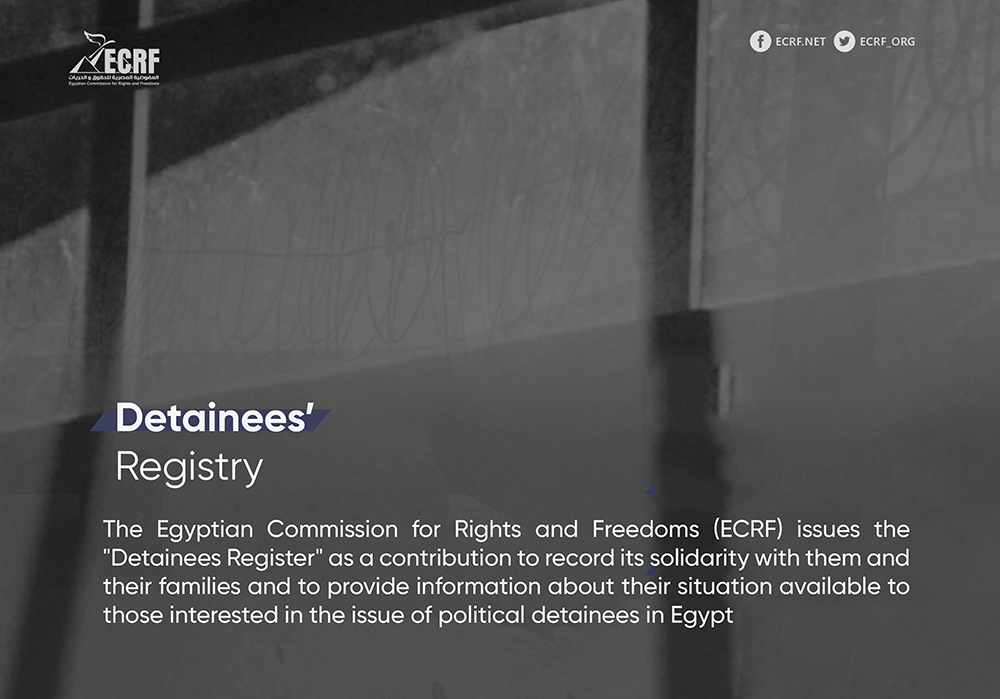Egyptian Commission for Rights and Freedoms releases the “Detainees Register”, which includes the names of 100 detainees in Egyptian prisons, among politicians, human rights defenders, lawyers, journalists and others, as a contribution to record its solidarity with them and with their families, as well as making information about their situation available to those interested in the situation of political detainees in Egypt.
The “Detainees Register” comes as evidence of the expansion in suppressing policy used by the Egyptian authorities against those engaged with the public sphere in any means or those who publicly dealt with their social reality even if it is far from political situations only related to social matters.
These repressive practices have come to take the nature of revenge against any form of peaceful opposition. The reprisals increased to include revenge not only against opponents and opinion-holders, but also extended to include their relatives as a tool of pressuring them. These extreme oppression policies inspired ECRF to publish the “Detainees Register”, especially in light of the widespread phenomena of arbitrary arrest, enforced disappearance, and prolonged periods of pretrial detention without reason or legal basis, which in some cases exceed the maximum period stated by the Egyptian law.
ECRF is aware that the 100 detainees mentioned in the “Detainees Register” do not include all possible prisoners of conscience, however, the register tries to highlight the pattern of the Egyptian authority in targeting opponents and defines accusations they are faced and their current legal status, as well as the violations that they are subjected to.
The “Detainees Register” relied on many sources of information, such as legal sources, or ECRF’s archive obtained through direct monitoring and documentation, as well as other various human rights and media sources.
The detainees were divided into 10 different classifications, between journalists, lawyers and trade unionists, activists of political parties and movements, workers, students, victims of moral guardianship, producers of culture and arts, and even relatives of arrested politicians and dissidents.

